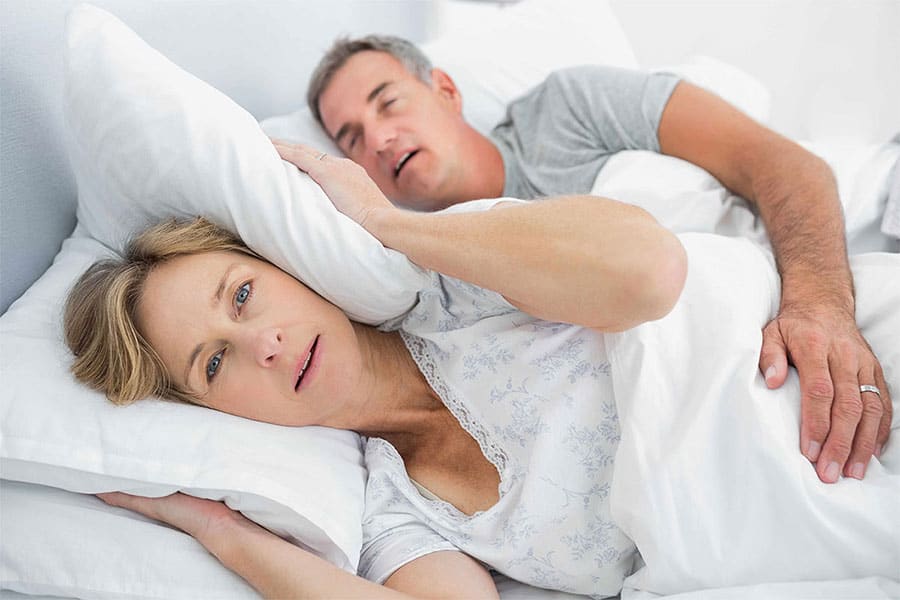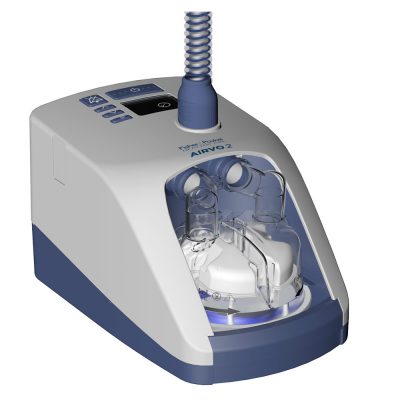Symptoms of sleep apnea
Sleep apnea is a severe sleep disorder that occurs when breathing of an individual is interrupted during sleep. People with untreated sleep apnea stop breathing repetitively during their sleep, sometimes hundreds of times. This indicates the brain and the rest of the body may not get enough oxygen.
Common Types of sleep apnea:
- Obstructive sleep apnea: The widespread of the two types of apnea, it is caused by a blockage of the airway, typically when the soft tissue in the back of the throat collapses throughout sleep.
- Central sleep apnea: Nothing like OSA, the airway is not blocked, but the brain fails to indicate the muscles to breathe, as a result of instability in the respiratory control center.
Common symptoms of sleep apnea include:
- Regular breaks or pauses in breathing:
Regular breaks or pauses in breathing are one of the most frequently cited symptoms of sleep apnea. In OSA (obstructive sleep apnea), the fatty tissues of the throat become relaxed during sleep and fall back into airways that restrict airflow and cause breaks or pauses in breathing for a few seconds. During this, the oxygen levels in your blood fall. Because of which brain wake itself from sleep long enough jump start your respiratory system into working properly again and get air past the blockage. Whilst your brain partly wakes up to react to the break in breathing, you still remain mostly asleep exclusive of realizing that you moderately awoke. But while you may not realize that you frequently wake during sleep, the constant interruptions have a negative effect on the amount and quality of sleep you get which cause many of the other signs on this list. Apnea incidents can occur everywhere from 5 to 20 times in an hour enduring up to 10-20 seconds at a time. Those with rigorous obstructive sleep apnea can experience hundreds of apnea events in a night. - Snoring:
Snoring is the sound created by vibrations in the upper respiratory airways during sleep. It is caused by obstructions as air is being restricted from moving easily throughout the airways. Even Many individuals who snore may not be conscious that they do so and are only alerted to it by an irritated bed partner whose sleep is bothered owing to the loud noises coming from the other side of the bed. Though snoring is a prevalent symptom of sleep apnea, it does not inevitably point out that the person has the disorder. Many people who snore do not have sleep apnea, and some people who have sleep apnea do not snore. Nevertheless, if snoring is noisy, disrupting and take places every night, it could be a sign of sleep apnea, and you may desire to talk about your snoring with your physician to see if it may be sleep apnea. - You feel tired all the time:
Even as you may feel you got a lot of sleep throughout the night as you were in bed for 7 to 8 hours overnight, all of those pauses and breaks to your sleep add up lots of lost time in quality and quantity of nightly sleep. One of the most frequent symptoms of sleep apnea is excessive daytime sleepiness. It includes difficulty in waking in the mornings, a general lack of energy, feeling extremely tired, taking regular naps that only partly relieve symptoms, sleepy off at unsuitable times, and trouble focussed amongst others. - Overweight and obesity:
In a lot of cases a person’s weight is correlated to having obstructive sleep apnea. People who are obese are more expected to have sleep apnea than those who sustain healthy weights. It often caused by excess fatty tissues that developed in the throat and neck. The excess tissues can plunge back into the airways during sleep cause difficulties to the airways and lead to apnea events. - Feel irritated or depressed:
The need of quality sleep can affect an individual’s mood. Losing sleep almost every night can make you feel more irritating, anxious, quick-tempered, and over a long adequate time even depressed. If you think your mood swings it may be caused by a lack of sleep. - High Blood pressure:
Hypertension is generally correlated to sleep apnea. For this reason you experience headaches because of regular pauses during sleep, you can get high blood pressure. Because your brain wakes from sleep as it recognize that it’s not receiving sufficient oxygen levels in the blood it grounds a prickle in blood pressure as it hampers blood vessels to begin your system working again. When this occurs frequently during the night, to fight with apnea event your body gets accustomed to having to confine its blood vessels and high blood pressure starts to persist even throughout the day when you are breathing normally. - Headaches: Headaches are commonly noticed by victims of sleep apnea. As you stop breathing regularly throughout the night, less oxygen is making its way to your brain. Low oxygen levels kick off the widening of blood vessels and can basis vascular headaches. Together with extreme daytime sleepiness, headaches are frequently the symptoms that sleep apnea victims nag the most about as they may not be conscious that they have signs of snoring or breaks and pauses in breathing.
Above we have listed some common symptoms of sleep apnea, if you have experienced any of the unmentioned signs it may be time to speak to a sleep specialist to plan a sleep study. If left untreated, it can cause a whole slew of medical problems and can put you at an enlarged risk for many health problems.



